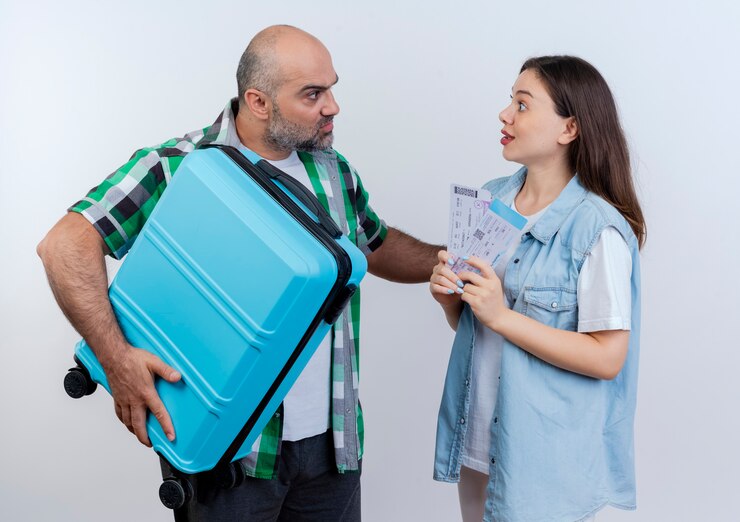Emotional baggage refers to unresolved emotional issues from the past that can impact our present relationships. It involves carrying the weight of past traumas, negative experiences, and unresolved emotions into our current interactions. These unresolved issues can significantly influence the dynamics, communication, and overall well-being of our relationships. In this article, we will explore the role of emotional baggage in relationships and how understanding it can lead to healthier connections.
Recognizing Emotional Baggage:
The first step in understanding the role of emotional baggage in relationships is recognizing its presence. Emotional baggage can manifest as fear, insecurity, trust issues, defensiveness, or patterns of behavior influenced by past experiences. It may stem from childhood traumas, previous relationships, or significant life events. Recognizing the signs of emotional baggage allows us to acknowledge its impact on our relationships.
Impact on Relationships:
Emotional baggage can have a profound impact on relationships. Unresolved emotions can create barriers to intimacy, trust, and effective communication. It may lead to misunderstandings, conflicts, and emotional distancing. Partners may find it challenging to connect on a deep level or experience difficulties in expressing their needs and emotions. Understanding the role of emotional baggage helps us recognize the underlying causes of relationship challenges.
Self-Reflection:
Self-reflection plays a crucial role in addressing emotional baggage. Take time to explore your own emotional history and the patterns that have emerged in your relationships. Consider how past experiences have shaped your perceptions, beliefs, and behaviors. Engage in self-reflection to gain a deeper understanding of your emotional triggers and responses. This self-awareness is essential for initiating change and growth.
Open Communication:
Open and honest communication is vital when dealing with emotional baggage in relationships. Create a safe space where both partners can express their feelings, concerns, and past experiences. Share your own emotional baggage and encourage your partner to do the same. Active listening, empathy, and non-judgmental communication foster understanding and create an environment where healing can occur.
Patience and Empathy:
Dealing with emotional baggage requires patience and empathy from both partners. Understand that healing emotional wounds takes time and effort. Be patient with yourself and your partner as you navigate through the process. Show empathy by acknowledging and validating each other’s emotions and experiences. Cultivate a supportive and compassionate environment that encourages growth and healing.
Seek Professional Help:
Sometimes, addressing emotional baggage may require professional assistance. Consider seeking therapy or counseling to explore and heal unresolved emotions and trauma. A trained professional can provide guidance, tools, and techniques to help both partners work through their emotional baggage. Therapy offers a safe and supportive space for deeper exploration and understanding.
Practice Self-Care:
Taking care of yourself is crucial when dealing with emotional baggage. Engage in self-care activities that promote your emotional well-being, such as exercise, mindfulness, journaling, or engaging in hobbies. Prioritize self-care to build resilience and create a solid foundation for personal growth. By tending to your own emotional needs, you can contribute positively to the health of your relationship.
Mutual Support:
Supporting each other through the healing process is essential. Create a supportive partnership where both partners are committed to growth and understanding. Be there for each other during challenging times and provide reassurance and comfort. Offer patience, understanding, and a willingness to work together to overcome emotional baggage and strengthen the relationship.
In conclusion, understanding the role of emotional baggage in relationships is crucial for personal growth and building healthier connections. Recognize the presence of emotional baggage, engage in self-reflection, communicate openly and honestly, practice patience and empathy, seek professional help when needed, prioritize self-care, and provide mutual support. By addressing emotional baggage, you can create a foundation for a more fulfilling and emotionally nourishing relationship. Remember, it takes time, effort, and commitment, but the rewards of healing and growth are worth it.










